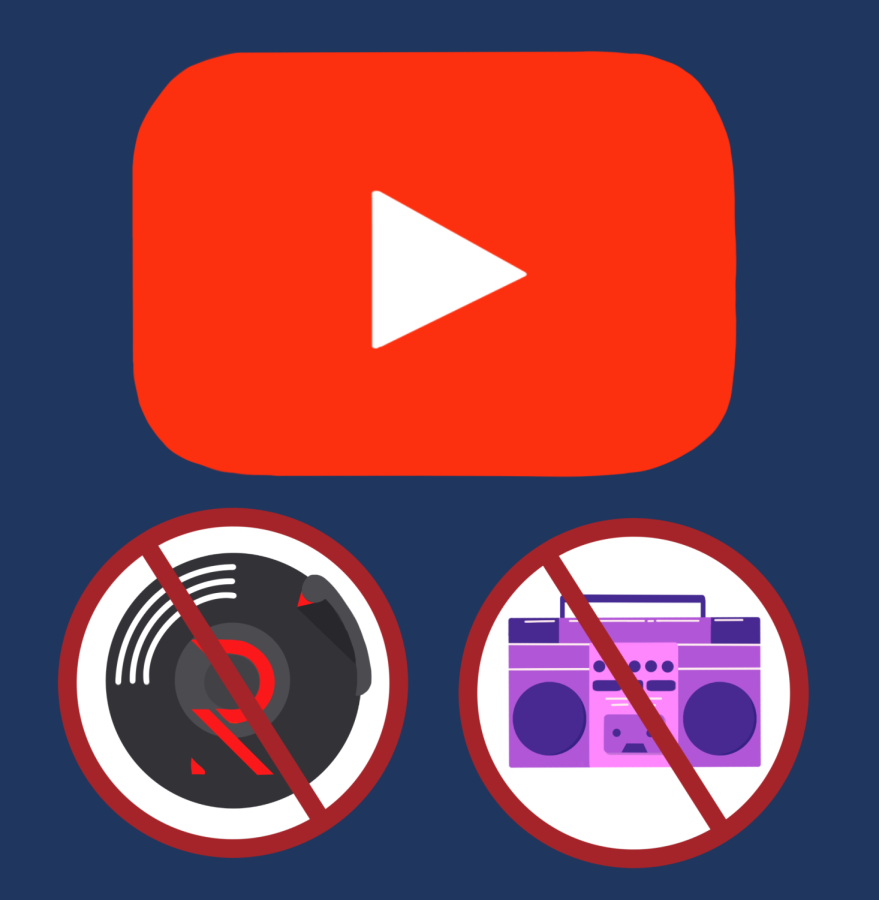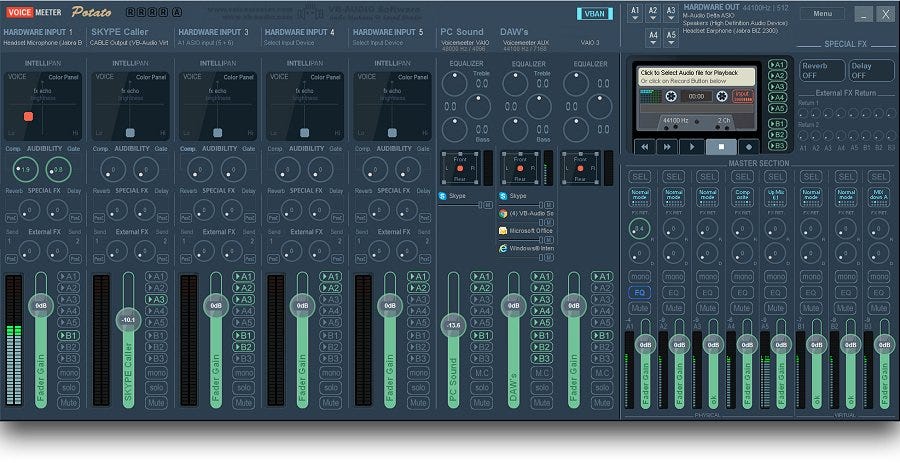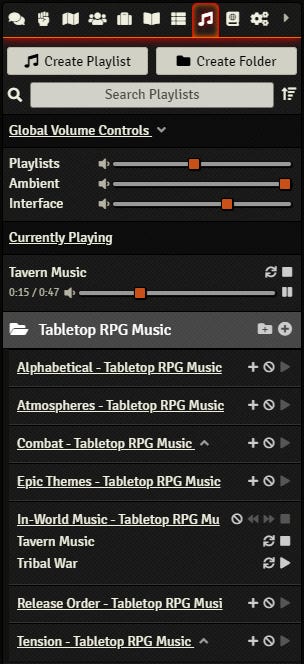Scoring Lancer: Curating and Sourcing Soundtracks
You wouldn't want to make an action movie without a banging soundtrack. Why not an action RPG?
>//COMMUNICATIONS ESTABLISHED
>//OPEN PROTOCOL
One of the comments that I have received as feedback a number of times during playtests and campaigns is that I have excellent backing tracks. Not every time, mind, but enough that I believe I have a decent grasp on scoring a Lancer game. That begs the question: how does one do that?
The first thing I should mention is that no, you do not need background music to have a fun Lancer experience, much less curated and crafted music selections. The people that I am writing this article for are the ones that want to know more about putting on some background music that’s more in tune with the game than just throwing on a 2 hour ambient cyberpunk mix.

What Kind of Music Do I Even Look For?
Short answer: It depends on the campaign.
Long answer: It does depend on the campaign, mission, encounter, hell even the minute-to-minute vibe of what you’re going for! Music contributes to atmosphere, tone, and pacing alike, so you’re going to need a decent range. That said, there are going to be some general characteristics shared by music that works for this purpose. Similarly, there are some shared criteria you’re going to want to watch out for.
Coherent Vocals are Not Your Friend…
Humans respond to audible words. Even if you can tune out a voice, it won’t be for long. If you’ve ever gotten sidetracked by someone talking, you’ll know exactly what I mean. However, even if not, coherent vocals, or in some cases any vocals at all, can be incredibly distracting in an RPG game.
What do I mean by coherent? Simple: Anything you can consciously understand. That’s it. Usually this can mean songs in your language but sometimes that’s not necessarily the case if the vocals are abstract enough. Keep in mind the languages your players speak out of game as well, and factor those in to your selections.
Unless you have a specific reason for including them, 99% of the time any music with lyrics is unnecessary.
Of course, just searching for instrumental versions of your favourite songs may not be ideal either. Usually, those songs are intended to be listened to with the vocals, so using them as instrumentals might bite you in the butt.
…Soundtracks Are
Fun fact: Good soundtracks from both video games and movies are designed to make you focus. Don’t believe me? When’s the last time you noticed a song in a game or movie that didn’t affect your focus on the scene?
Probably when it didn’t fit or was too distracting. When a soundtrack fits, you stop consciously noticing it. With video games especially, the music can actually help your focus as well in some circumstances. That’s ideally what you want to achieve when selecting your tracks.
Unfortunately, it is not as easy as just throwing on some video game and movie soundtrack songs and calling it a day.
Hey! Thanks for reading this far. Want to get Lancer content, GM advice, player advice, stories, and insights into the journey and wisdom of a professional GM? You can get these articles straight to your inbox for free!
You can also share this post with your friends, real, parasocial, and paracausal!
Match Your Setting

The first thing you want to check when picking your music is that it actually fits the setting you’re working with. For Lancer specifically, it’s a “mud and lasers” setting, with a blend of old and new technologies working in tandem. It’s gritty soft sci-fi with a hard sci-fi shell. Cassette futurism aesthetics with Halo tech. It’s a system about humans in wars they should never be fighting, that they fight because they have hope for the future and spite for the people that want them dead. Player characters are usually soldiers, mercenaries, pirates, and people fighting for a cause from all walks of life.
War game soundtracks set in modern day equivalent and beyond, with a good bit of leeway for the 1980’s, will work perfectly. Science fiction war game soundtracks work especially well, such as Halo or Mass Effect. Look at some of the video games you’ve played and see if you can find stuff you like. Into the Breach, Ace Combat, Project Wingman, Destiny, and Metal Gear are some great examples.
Vibe Check
The next thing you’re going to want to look for when looking for a piece of music is what you actually feel from it. Literally.
So, chances are you have at least some vague idea of a scene in mind. Perhaps it’s more fleshed out, like from a module, or maybe it’s just a fledgling idea in your mind. Let’s look at both.
For a fledgling idea, it’s a good start to look at the idea and then look at what sort of tone and pacing it may require. A high-energy chase scene will require very different music to a stealthy insertion into a party. Then, stop there and pick a track. Be deliberate about this. Listen to each one you deliberate carefully. Close your eyes, even. Ask yourself how this song makes you feel, what you envision listening to it. If it matches what you’re going for, then start writing the scene while listening to that song. Especially if this is a boss fight, this will help you really dial in the atmosphere, tone, and pacing of the encounter. If you go based on how you feel listening to the song, chances are other people will have the same feelings.
With regards to using an existing module, the process is similar, but you want to listen to the track and try to imagine the scene playing out (at least, in an ideal sense). If the music directs your mind in a direction that matches the module and everything syncs up? You’ve found your song.
Organize Your Music
One thing that can trip you up is that your music library for your games will grow. It's a good idea to organize your music, whether it’s having folders by encounter type or mission specific playlists. Find a system that works for you. I generally organize songs into environments, narrative sequences, themes, and mission specific tracks.
Don’t Worry About Perfection
I’ve spent some time talking about how to curate a soundtrack, but the truth of the matter is you won’t have accounted for everything. Things will go wrong. You’ll forget to switch tracks and only realize after the relevant scene was finished. The players will do something that completely throws off the atmosphere.
Don't sweat it too much. Don’t let the time spent curating a soundtrack get in the way of running a fun game. If the players moon your boss while a hype track is playing, then adapt in character, react to the situation accordingly, maybe pause the track for comedic effect, and carry on. It’s not worth losing sleep over.
If all this sounds like too much work, it might be. And that’s okay. No one said running RPGs has to be draining.
Playing and Sourcing Soundtracks
Now that you have your soundtrack built out, it’s time to show you how to get the music going in your games.
There are a few options.
Discord Bots
What used to be the most common and convenient option has become a source of frustration. Getting a Discord bot that can play music off of YouTube is like finding the Holy Grail. Copyright has affected the scope of most bots, meaning that your bot of choice may be limited to platforms like Spotify or SoundCloud. Not the best, but it often is the simplest solution. Bots can be independently controlled for volume, which can help players with sound processing issues.
Sound Cards
Software such as VoiceMod, Voicemeeter, and similar software in the soundboard and sound card sphere allow you to play audio as an input device for Discord (or whatever meeting platform you use). This means that players will not only hear your voice, but also any music or sound effects you have loaded up. Very handy! Unfortunately, you do have to adjust the volume of the music yourself, as your players cannot dial back the music without also dialing you back. This does also typically have the need for downloaded music and sounds.
VTT Audio
Many virtual tabletops have built in audio players. This is similar to Sound Cards in that you need downloaded music, but your players can adjust the volume of both you and the music independently. This is the option I find myself using most often, as folks with audio sensitivities can dial down or mute the music as much as they need without discomfort before it becomes a problem. It also lets me maintain full control over the soundtrack so long as I can source files.
Downloading and Obtaining Music
I’ve mentioned it twice now, so I might as well dig deeper and fire Chekhov's gun.
There are ways to get downloaded music off of platforms like YouTube for free. While I cannot condone them officially, I also cannot stop you from using them. YouTube downloaders, web based and terminal based alike, are things that exist. Your level of trust in them is up to you alone. However, music store sites such as Bandcamp allow you to download MP3s of songs once you have purchased them. This is not possible with streaming services like Spotify. There also exist services like Epidemic Sound, which offer a monthly subscription in exchange for a vast library of music, which you can even put on a content channel and monetize if that’s your inclination.
Conclusion
That’s all I have on sourcing and curating soundtracks! I hope this article leads to many a comment about excellent music in your games. Let me know if you have questions in the comments below!
>//COMMUNICATIONS DISCONNECTED
>//GOOD LUCK, LANCER






Nice compilation of advice and resources! Video game music really does do an excellent job of setting a vibe and moving to the background. As for sound-sharing tools, one I’ve used before is Syrinscape. It requires a subscription from the GM (only), but it provides a soundboard and atmospheric sounds/music. Some VTTs also have tools to integrate with it, like Fantasy Grounds and recently Foundry VTT. The sci-fi catalog is notably smaller than the fantasy one, but there may be some gems in there, especially if you also GM for fantasy settings.